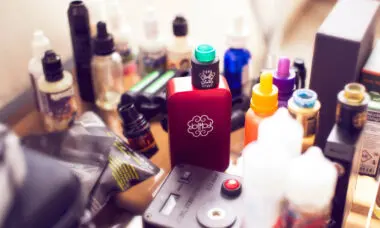 Five US companies are top of the list with the most premarket tobacco product applications (PMTAs) submitted to the US Food and Drug Administration (FDA), and represent 5m out of the 6m total applications by the September 2020 deadline.
Five US companies are top of the list with the most premarket tobacco product applications (PMTAs) submitted to the US Food and Drug Administration (FDA), and represent 5m out of the 6m total applications by the September 2020 deadline.
After analysing the list that the federal agency published earlier in May, ECigIntelligence found that JD Nova, Matrix Minds, Perfect Vape, Big Time Vapes and Imperial Vapors have the highest number of applications.
JD Nova Group is the US company that submitted the most, with 4.68m submissions. According to president Jack Blaisdell’s LinkedIn profile, the company has four subsidiaries. This includes Vapolocity, a vape shop located in El Paso, Texas.
The company, which according to an analytics company has a sales range under $500,000, did not respond to any queries.
The second company on the list is the Texas-based Matrix Minds, which submitted 336,272 submissions. Owner Char Owen said that due to her background as a computer engineer, she managed to help approximately 180 small companies with filing the PMTAs by creating standard files that just had to be filled by the different companies.
“For small manufacturers that had no information technology staff, this was an impossible task,” she said.
The American Vapers Manufacturers (AVM), where Owen is the president, invested roughly $1,250 per application for carrying out environmental assessments, one seventh of the regular cost. According to Owen, this also gave small businesses otherwise unable to afford the cost an opportunity.
The AVM also helped to file applications for Big Time Vapes, the fourth company on the list. It submitted applications for a total of 96,950 vaping products, according to the FDA list. The applications contained around 350 different flavours.
Oklahoma-based Perfect Vape, with 120,399 submissions, holds the third position in the list. At the end of April, the company announced that the FDA accepted the application.
The last among the top five is Imperial Vapors, with 65,382 submissions. Located in Los Lunas, New Mexico, it generated around $315,643 in sales since it was founded in 2014, according to the company’s snapshot.
As ECigIntelligence recently reported, among all the applications there was a relatively low number of submissions for open system hardware, which is likely to reduce options for consumers.
– Antonia di Lorenzo ECigIntelligence staff
Photo: Antonin FELS







